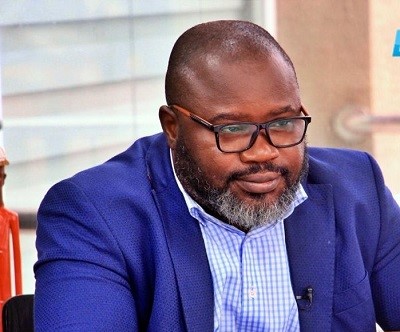After 17 years of adaptation and implementation of the Free Compulsory Universal Basic Education (FCUBE) policy, the Ghana Statistical Service (GSS) data shows that over 1.2 million children are still not in school due to several social constraints, a situation the Africa Education (Eduwatch), bemoans and called on the government to revisit commitment.
The Executive Director of Eduwatch, Kofi Asare, in his World Children’s Day (WCD) message, lamented that public basic education is neither truly free, compulsory nor universally accessible to all Ghanaians due to social constraints such as poverty, inadequate infrastructure, and low resource allocation to the commitments in the policy.
“Seventeen years after implementing FCUBE, about 1.2 million children are still not in school. Public basic education is still neither truly free, compulsory nor universally accessible to all Ghanaian children. Hidden fees, low government investment in building new schools and maintaining and operating existing ones, and poverty continue to humper universal access.
On this occasion of World Children’s Day 2022, the government must revisit FCUBE and re-commit to making basic education free, universally accessible, and compulsory for all Ghanaian children by increasing capital investment and financing of public basic education,” he said.
With current statistics showing that there are some 5,400 schools under trees, and an additional 4,000 junior high schools (JHSs) needed for pupils graduating from public primary schools in remote communities where there is no continuation infrastructure, urgent infrastructure is required for FCUBE to come to full realization.
World Children’s Day
World Children’s Day is an annual United Nations (UN) commemoration designed to highlight the difficulties of children, and how best such hurdles can be mitigated. This year’s commemoration is themed “inclusion for every child.”
It’s marked on 20 November each year to promote international togetherness, and awareness among children worldwide, and improve children’s welfare.
The Introduction of FCUBE and Objectives
The government introduced the concept of FCUBE for every school-age child to gain literacy. It was launched in 1996 but implementation started in 2005.
The main policy goal of the FCUBE programme was to provide the opportunity for every school-age child in Ghana to receive quality basic education. The Ghana Education Service (GES) developed three broad implementation objectives to achieve the FCUBE goal: to enhance the quality of teaching and learning; to improve the efficiency in the management of the education sector, and to provide full access to educational services by empowering all partners to participate in the provision of education to all children.
The Free Compulsory Universal Basic Education was successfully implemented in the year 2006 together with the School Feeding Programme which aims to curb malnutrition among children aged five to ten years at the primary level of education.
Objectives include A step to expand and promote good and quality education through basic education. To improve the existing relationship between the community and teachers, and in public schools. To supply materials that aid teaching and learning adequately in all public schools in the country. Teacher motivation via incentives established programmes for good willingness in service to the nation. And to improve school management and discipline in public schools.
Why was FCUBE introduced?
In the 1992 constitution of Ghana, Article 38 (2) stated clearly that “The Government shall, within two years after Parliament first meets after the coming into force of this Constitution, draw up a programme for implementation within the following ten years, for the provision of free, compulsory and universal basic education.”
The FCUBE programme manifested the education dream of the 1992 constitution. The constitution only expected a free universal education plan but it was the set-up committee that came up with the name FCUBE.










